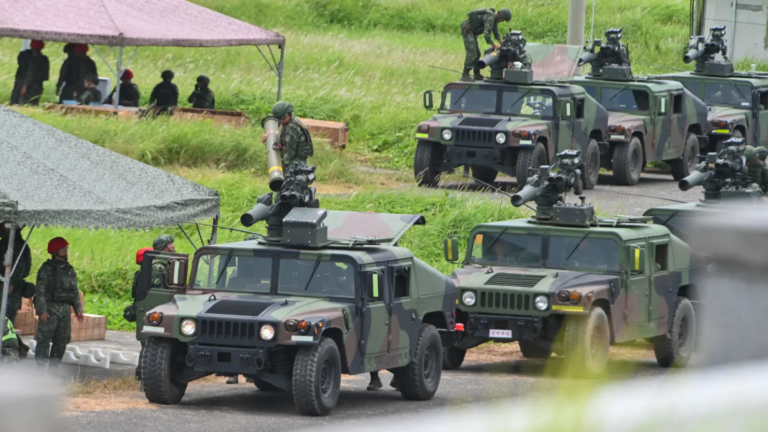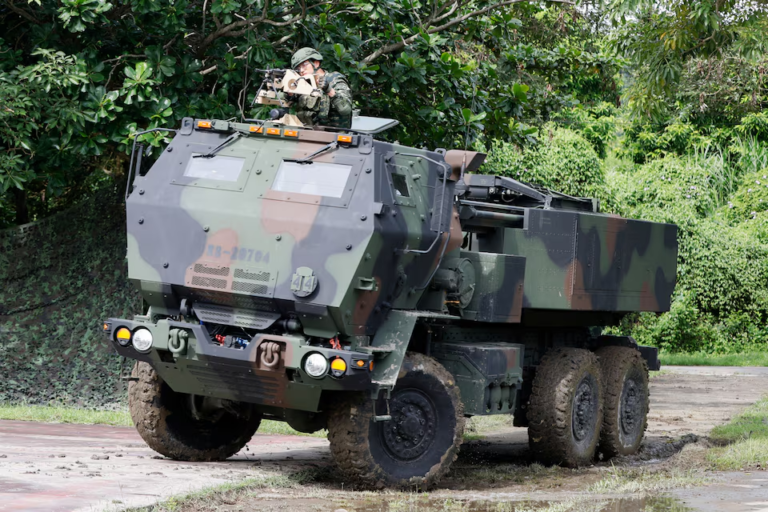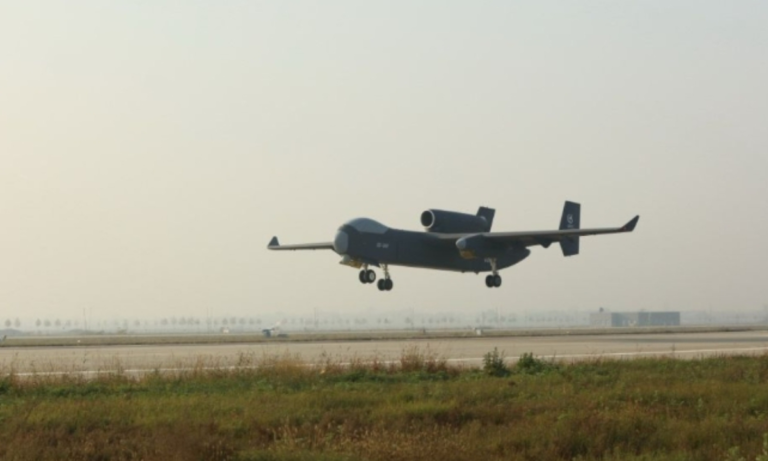
On his first trip to the Indo-Pacific since becoming the United States defense chief, Pete Hegseth reaffirmed the nation’s commitment to maintaining peace and security in the region. Hegseth said the U.S. would “truly prioritize and shift to this region of the world in a way that is unprecedented,” according to the U.S. Defense Department.
“Today, it’s the Philippines. Tomorrow, it’s Japan,” he said during a news conference in Manila in late March 2025. “It will be Australia and South Korea and other nations in this part of the world, where together, by, with and through we will establish the deterrence necessary to prevent war.”
Those four Indo-Pacific nations, as well as New Zealand and Thailand, have defense treaties with the U.S.
Hegseth said the U.S. has committed security assistance to Manila beyond the $500 million pledged previously to help modernize the Philippine military. The U.S. also will deploy an anti-ship missile system, known as the Navy Marine Expeditionary Ship Interdiction System, and uncrewed sea vessels for the upcoming multilateral military exercise Balikatan, which is hosted by the Philippines and U.S.
Hegseth reaffirmed Washington’s “ironclad” commitment to its defense treaty with the Philippines and pledged to deploy advanced capabilities to strengthen deterrence against threats, including Chinese Communist Party (CCP) aggression. He emphasized that the U.S. is not seeking war but will “achieve peace through strength.” His meeting with Philippine officials highlighted the shared commitment to peace in the Indo-Pacific, including the South China Sea.
“I would like to categorically state that what is at stake in our unilateral and bilateral activities is not merely the security of either the United States or the Philippines,” Philippine Defense Secretary Gilberto Teodoro said, according to the U.S. Defense Department. “We are facing a common threat, which is the overreach of the Communist Party of China.”
In Tokyo, Hegseth called Japan an “indispensable partner” in deterring Beijing’s growing assertiveness and announced an upgrade of the U.S. military command in Japan to a “war-fighting headquarters,” according to The Associated Press (AP).
Hegseth encouraged Manila and Tokyo to accelerate strengthening their defense capabilities amid the CCP’s assertive military activities in the South China Sea and near self-governed Taiwan.
“Japan is our indispensable partner in deterring communist Chinese military aggression,” Hegseth said at the start of talks with Japanese Defense Minister Gen Nakatani in Tokyo, AP reported. “The U.S. is moving fast, as you know, to reestablish deterrence in this region and around the world.”
Japan and the U.S. agreed to speed up plans to jointly develop and produce missiles such as Advanced Medium-Range Air to Air Missiles and consider producing SM-6 surface-to-air missiles, Nakatani said. They also agreed to streamline the maintenance of U.S. aircraft and vessels in Japan to strengthen and complement Japanese and U.S. defense industries, AP reported.
Earlier in March, Tokyo launched the Japan Joint Operations Command (JJOC) to coordinate the nation’s Air, Ground and Maritime Self-Defense Forces, while also strengthening capabilities to respond to contingencies and better cooperate with the U.S.
Hegseth said U.S. Forces Japan will become a joint force headquarters to liaise with the JJOC and bolster the speed and capability of joint operations. Japan and the U.S. must work for peace, but “we must be prepared” for a potential conflict, he said.
Hegseth and Nakatani said they also agreed on the need to enhance Japan’s defense posture in its southwestern islands, which are located along disputed areas of the East China Sea and near Taiwan, to strengthen deterrence against China.
Hegseth stressed the need for a “sustaining, robust, ready and credible deterrence” in the Indo-Pacific, including across the Taiwan Strait, as “Japan would be on the frontlines of any contingency we might face in the Western Pacific.”
Hegseth’s Indo-Pacific trip underscores the importance of U.S. alliances in the region and reflects the nation’s commitment to regional security and maintaining strong partnerships, particularly in the face of growing threats from China, North Korea and Russia.
The trip “sends a very strong message of the commitment of both our countries to continue to work together to maintain the peace,” Teodoro said.





